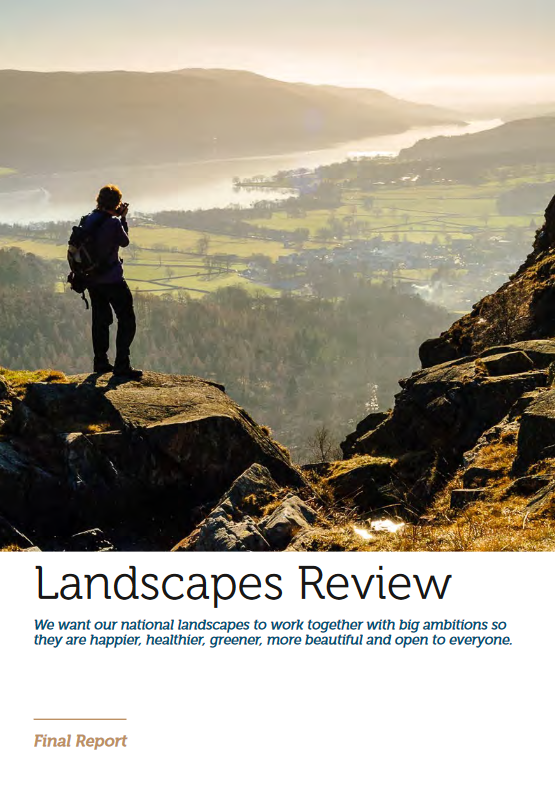
The Glover review is, I repeat, a serious, imaginative and important document. I would suggest that it should be widely and often read and re-read. But it is an inherently conservative view of National Parks and AONBs and their future.
When reading a report like this one it is easy to read more into the words you like than you should – indeed that is part of the skill of getting a good response to such a report that is written at a high level where all can agree. But high-level agreement almost always disguises medium-level lack of agreement and that’s what we would probably find here too. Everyone wants more nature in National Parks, because they are notably underachieving at the moment, but what are the priorities for action? You don’t find them here.
If you work in one of the industries that is a block to natural capital or wildlife in these areas you will be relieved that there isn’t much sign that your life will be made much more difficult.
My verdict is that the report is strong on vision, strong on people, weak on analysis, weak on practicalities and disappointing on nature. It’s a pity that the panel didn’t have some rather more diverse views represented and it didn’t have more nature conservation expertise.
[registration_form]
The elephant in the room which you aren’t allowed to touch if you are part of the establishment is intensification. The way the NPs have changed over the past 30 years in the efforts to make money out of bluntly uneconomic activities – sheep farming & grouse – is what has wrecked the wildlife value. Forestry played its bit – but not in the modern era, with planting effectively stopping after 1990 – yes, guilty in the past, but not the recent past.
A key factor in this is that there is actually lots of money already in the system – some time ago the Exmoor national park officer told me that the average farm on Exmoor received £30,000 in subsidies annually – far more than the actual farm income and more than enough to pay for alternative management – that might leave not just wildlife but the people doing the work better off.
Having said that, there is a big assumption that needs questioning – just how important for wildlife are the NPs, or how important could they be ? Would resources be better devoted to more lowland wetlands, for example ? They aren’t big on our international values – wintering birds and seabirds.
The big outcomes we probably want from our uplands now are carbon and water. The environmental conditions favouring those outcomes would almost certainly be better for wildlife, and for people other than the ‘stripped hill’ brigade once again lambasted by George Monbiot in today’s Guardian.